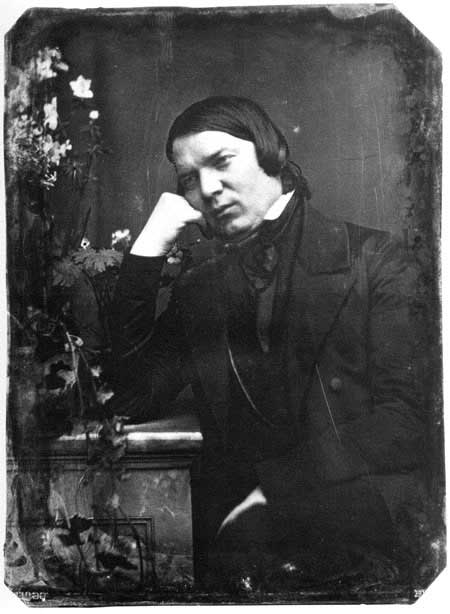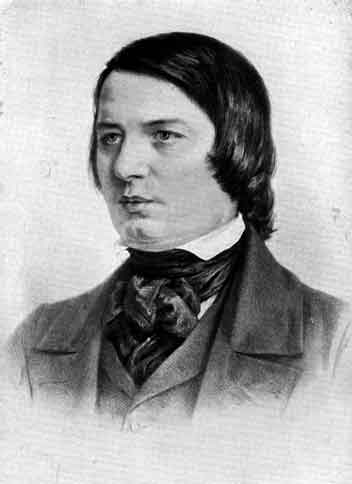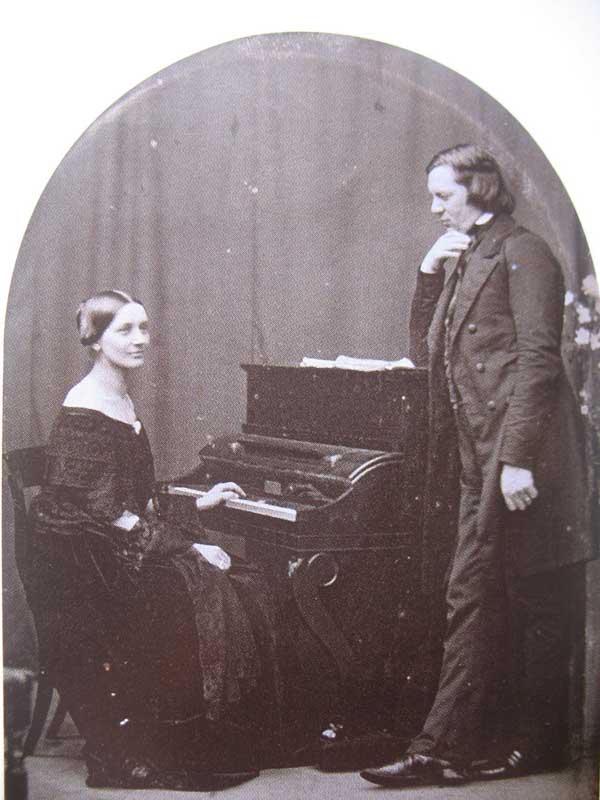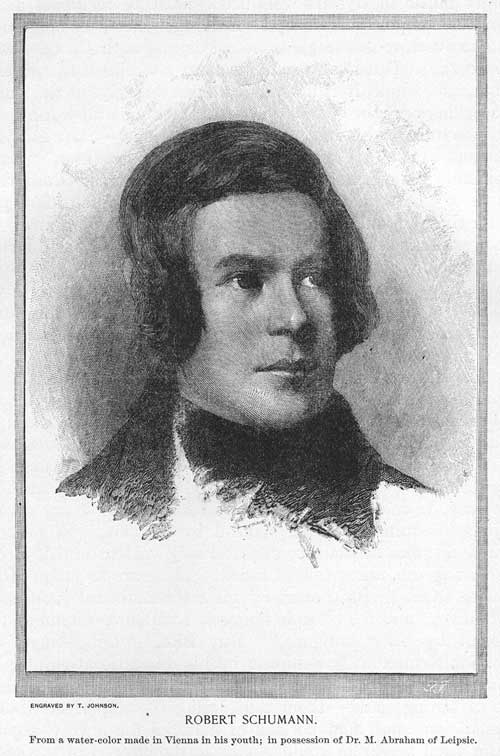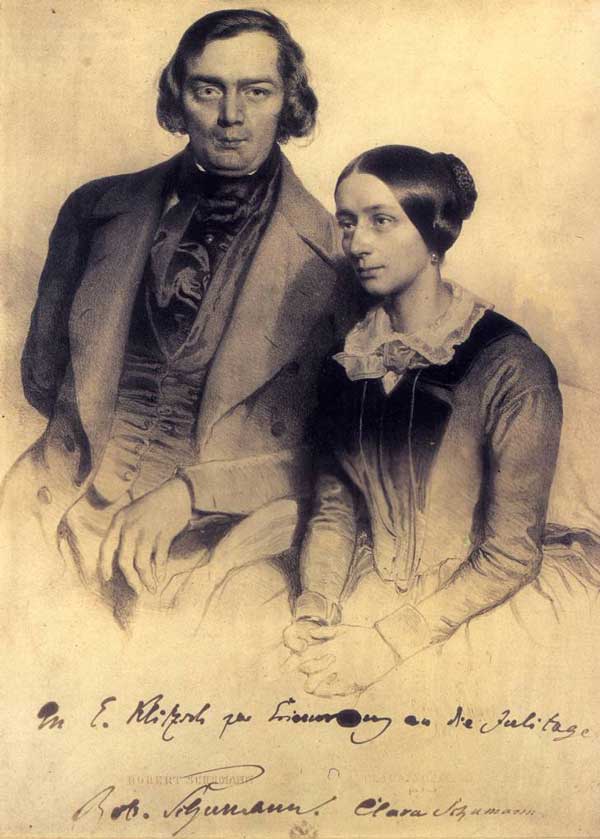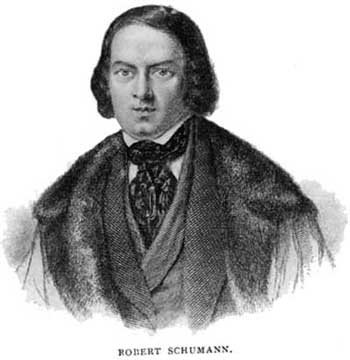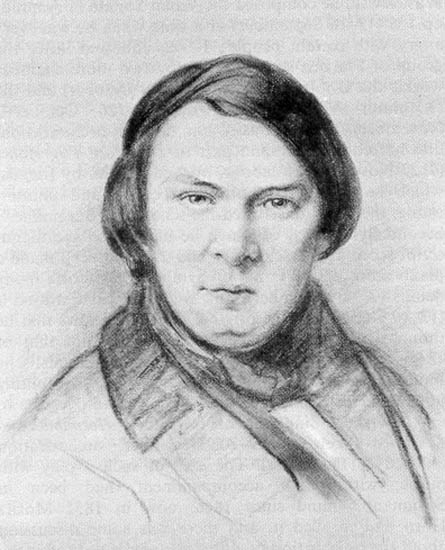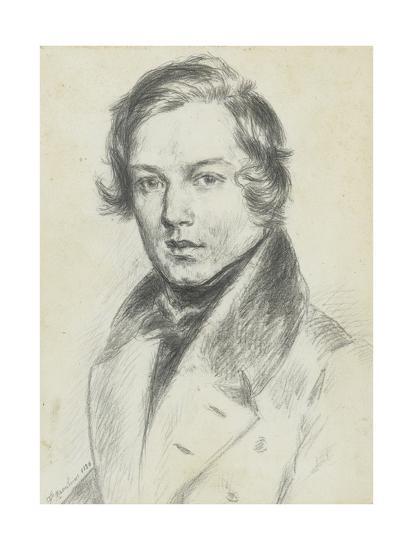Overview
Works Directory
| List of compositions by Robert Schumann | Robert Schumann music compositions. |
Top Works
Photos
Biography
Robert Schumann (8 June 1810 – 29 July 1856) was a German composer and influential music critic. He is widely regarded as one of the greatest composers of the Romantic era. Schumann left the study of law, intending to pursue a career as a virtuoso pianist. He had been assured by his teacher Friedrich Wieck that he could become the finest pianist in Europe, but a hand injury ended this dream. Schumann then focused his musical energies on composing.
Schumann's published compositions were written exclusively for the piano until 1840; he later composed works for piano and orchestra; many Lieder (songs for voice and piano); four symphonies; an opera; and other orchestral, choral, and chamber works. Works such as Kinderszenen, Album für die Jugend, Blumenstück, the Sonatas and Albumblätter are among his most famous. His writings about music appeared mostly in the Neue Zeitschrift für Musik (New Journal for Music), a Leipzig-based publication which he jointly founded.
In 1840, Schumann married Friedrich Wieck's daughter Clara, against the wishes of her father, following a long and acrimonious legal battle, which found in favor of Clara and Robert. Clara also composed music and had a considerable concert career as a pianist, the earnings from which formed a substantial part of her father's fortune.
Schumann suffered from a lifelong mental disorder, first manifesting itself in 1833 as a severe melancholic depressive episode, which recurred several times alternating with phases of ‘exaltation’ and increasingly also delusional ideas of being poisoned or threatened with metallic items. After a suicide attempt in 1854, Schumann was admitted to a mental asylum, at his own request, in Endenich near Bonn. Diagnosed with "psychotic melancholia", Schumann died two years later in 1856 without having recovered from his mental illness.
One of the great composers of the nineteenth century, Schumann was the quintessential artist whose life and work embody the idea of Romanticism in music. Schumann was uncomfortable with larger musical forms, such as the symphony and the concerto (nevertheless, representative works in these genres contain moments of great beauty), expressing the full range of his lyrical genius in songs and short pieces for piano. Schumann's extraordinary ability to translate profound, delicate -- and sometimes fleeting -- states of the soul is exemplified by works such as the song cycle Dichterliebe (A Poet's Love), after Heinrich Heine, and his brilliant collections of short piano pieces, including Phantasiestücke (Fantastic Pieces), Kinderszenen (Scenes form Childhood), and Waldszenen (Forest Scenes). In his songs, as critics have remarked, Schumann attained the elusive union of music and poetry which Romantic poets and musicians defined as the ultimate goal of art.
Schumann's father was a bookseller who encouraged Robert's musical and literary talents. Robert started studying piano at age 10. In 1828, he enrolled at the University of Leipzig as a law student, although he found music, philosophy, and Leipzig's taverns more interesting than the law. He also began studies with a prominent Leipzig piano teacher, Friedrich Wieck. There was serious mental illness in Schumann's family, and the composer, who most likely suffered from a manic-depressive condition, approached madness with the typical Romantic combination of fear and fascination. A compulsive womanizer and a heavy drinker, Schumann led a life that aggravated his psychological problems. His efforts to become a concert pianist failed after he developed partial paralysis of his right hand. According to a conventional story, the injury resulted from Schumann's compulsive use of a finger-strengthening device, but newer research points to mercury poisoning due to treatment for syphilis. Schumann settled on a career as a composer and musical writer, co-founding the influential Neue Zeitschrift für Musik and attracting attention early with his prophetic praise of Chopin. Many of his articles take the form of dialogues featuring the "League of David," young artists fighting the "Philistines," and headed by his alter egos "Florestan" and "Eusebius," intended to represent the two contrasting facets -- one ebullient, the other reserved -- of his personality. Schumann's music, with its sharp changes in mood, also reflects his tumultuous inner life. Wieck's highly talented pianist daughter Clara grew up and fell in love with Schumann, to her father's horror. Despite Wieck's opposition, Clara and Robert gained the legal right to marry in 1840, a day before Clara's 21st birthday. During this period Schumann composed feverishly. Spellbound by a musical thought, he would work himself to exhaustion, enthusiastically cultivating a particular genre for a period of time. (For instance, 1841 was a "year of songs" in which he brought the Romantic song cycle to its apex). He virtually invented the short, poetic, descriptive Romantic piano work, and produced such works in glorious profusion in the late 1830s. Schumann tackled larger forms in the 1840s, partly at Clara's urging; his four mature symphonies retain a place in the repertoire, but his opera Genoveva failed. He held several musical jobs, teaching at the newly-founded Leipzig Conservatory, eventually becoming town music director in Düsseldorf, but without much success. On February 27, 1854, he threw himself into the freezing waters of the Rhine. After his rescue, he voluntarily entered an asylum. Although he had periods of lucidity, his condition deteriorated, and he died there in 1856, probably of tertiary syphilis.
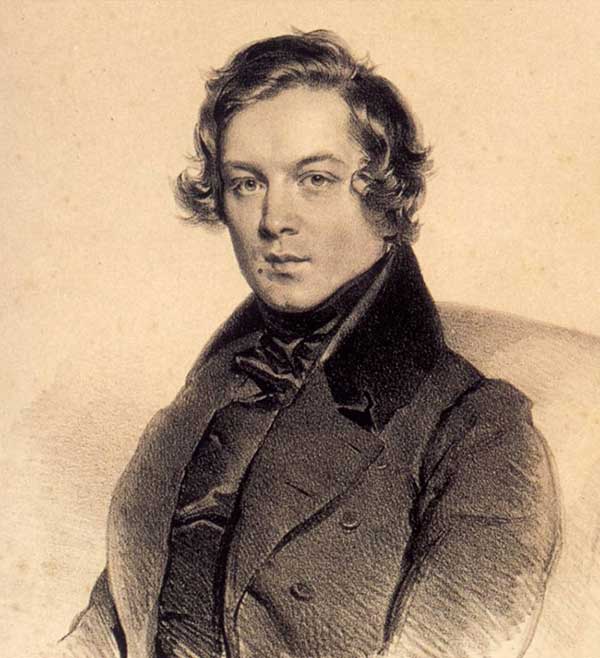
Index: 9.4
Type: Person Male
Period: 1810.6.8 - 1856.7.29
Age: aged 46
Area :Germany
Occupation :Composer / Critic
Periods :Romantic Music
